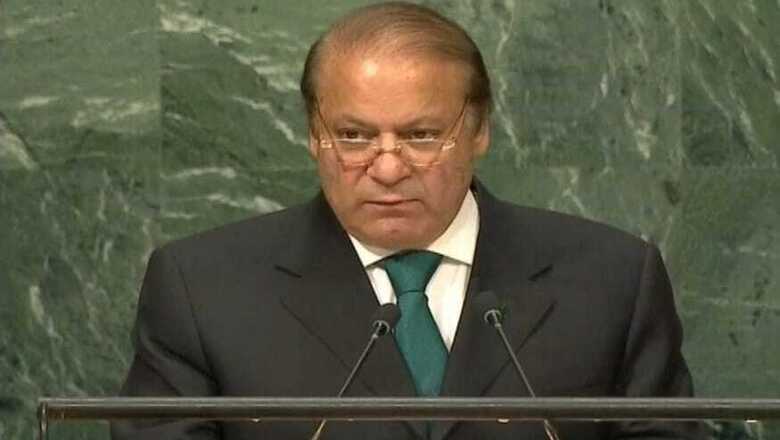
views
New Delhi: As expected, Pakistan Prime Minister Nawaz Sharif has delivered a rant on Kashmir in his speech at the United Nations General Assembly. In his brief 20-minute speech, more than half of which was a sermon to the world about the 'sins' of the Indian state in Kashmir over the last 80 days, Sharif went into great detail about the deaths, pellet injuries, even demanding a UN backed independent inquiry commission. Much of this speech was verbatim a repetition of what he said at the UNGA last year. The only new addition was the reference to Burhan Wani.
Sharif called Wani "the young leader" whose killing led to ”a second Kashmiri intifada’. While one should not discount or belittle the grave nature of recent problems in Kashmir and the utter inability of both the Central and State governments in handling the situation, by eulogising Burhan Wani, and that too from the podium of the UNGA, Sharif has taken things too far. What next? Praising Masood Azhar or Hafiz Saeed in his next UNGA speech? No wonder there were few takers in the General Assembly hall for Sharif’s Kashmir spiel.
As expected the Pakistan Prime Minister did not even utter a word on the recent Uri terrorist attack. On the issue of terror, Pakistan behaves as much like an ostrich with its head buried in the sand as India does on the political nature of the problem in Kashmir. But let us try to make sense of what Pakistan has been trying to achieve in the last two months.
As Vir Sanghvi quite succinctly but rather eloquently put it on Wednesday night’s edition of India @ 9, “We tend to think Pakistan does this because it wants to feel loved. Truth is Pakistan doesn’t want to feel loved. It wants to feel needed.” Everything that Pakistan has done in the last two months has been to draw international attention on Kashmir. From calling Burhan Wani a "martyr" to sending 22 envoys to different global capitals to rally support for the Kashmir cause, Pakistan’s near-term objective is to draw the world’s gaze to what’s happening in Kashmir. Unfortunately for Pakistan, the world seems to be engrossed with the goings on in Syria, not Kashmir. And rightfully so.
To understand this perennial need for attention, you have to understand the nature of the Pakistan state. After the 1971 war, the two nation theory was thrown out of the window. Jinnah’s whole rationale that Muslims in the subcontinent needed a separate nation fell apart after the liberation of East Pakistan. This was a huge dent on the collective conscience of Pakistan and particularly its Army.
So during the Zia years the Army used a combination of Islamisation and rapid militarisation to give Pakistan a new identity and new sense of binding. And with the insurgency in Kashmir, they found a new strategy to take on a bigger neighbour like India which was conventionally much stronger. Asymmetric warfare. Death by a thousand cuts. It’s a strategy that has worked well for Pakistan for the last 30 years particularly for its military. It gave its generals a false sense of bravado as India, the big brother had been reduced to some false equivalence. Unfortunately India’s response to a thousand cuts has been to get a thousand bandages. And that is a policy failure.
The only comparable example to this unique Indo-Pak conundrum is what is happening in the Korean peninsula. There too, you have a much smaller neighbour, both economically and militarily, the North trying to grab the world’s attention and particularly the attention of its more prosperous cousin in the South by nuclear sabre rattling every once in a while. South Korea, while stepping up its defences and strengthening its military alliances, also knows well that full-scale war is not an option. Not with a nuclearised neighbor with an errant leadership.
So what does Seoul do? It joins hands with the international community to show the North for what it really is, a global pariah state. In the absence of any ‘good military’options, South Korea hopes that through a combination of carrot and stick, over the course of one or many generations, it can change the nature of Pyongyang’s state apparatus. Many neutral observers say it’s time India adopted the same approach vis a vis Pakistan. The former American Ambassador to the UN Zalmay Khalilzad for one. In the meantime, we only need to do one thing in response to Nawaz Sharif’s rant at the UNGA. As they say in this part of the world, zyada bhaav mat dena (don’t care too much).











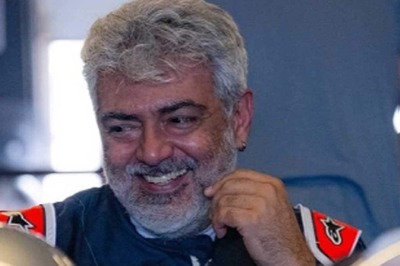





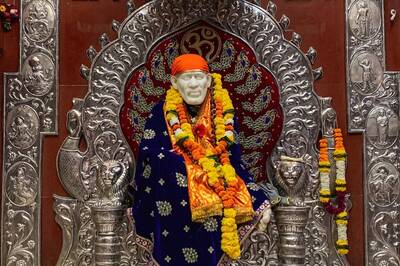
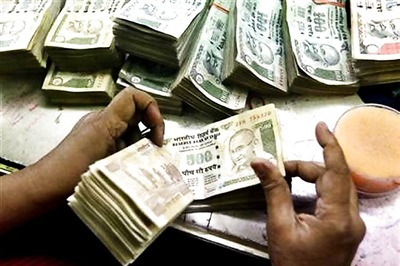
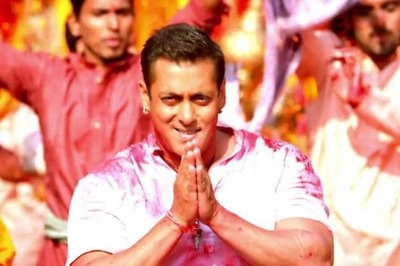
Comments
0 comment